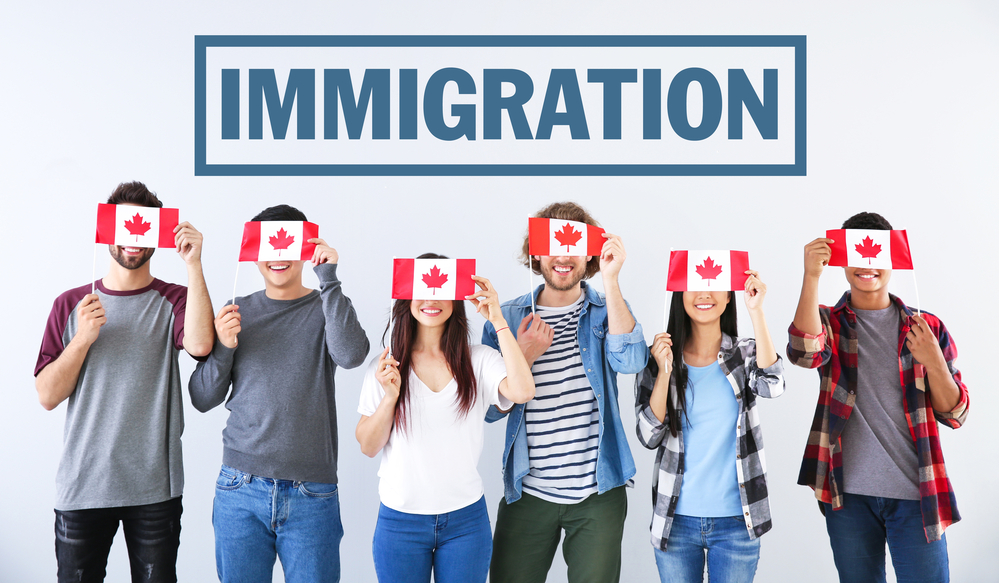During the first half of the 20th century, great power competition often involved the military. During the second half of the 20th century, competition switched to trade and investment. Canada seems to be one of the first countries to understand that the 21st century will be a battle for the world’s top talent:
Last month, Canada offered a three-year work permit to anyone holding a U.S. H-1B visa, the most common entry permit for immigrants working in the tech sector. The program, aimed partly at workers laid off in Silicon Valley’s recent downturn, drew 10,000 applicants in its first 48 hours — “a strong indication of just how competitive Canada is on the global stage,” a spokesman for the country’s immigration ministry said.
It was also a reflection of frustration among migrants who find the U.S. visa system difficult and slow. According to one estimate, only about one in 10 people who register for the annual H-1B lottery get a visa.
“A Canadian visa is much easier,” Gireesh Bandlamudi, a 29-year-old software engineer from India, told me. With a U.S. job offer in hand, he considered his chances of winning an H-1B and applied to Canada instead. He now works remotely with AtoB, a San Francisco firm that provides financial services to trucking companies, from his new home in Vancouver.
Several factors are making immigration policy increasingly central to great power competition:
1. Rapidly declining birth rates. Some countries will see their population fall in half each generation, if they do not allow immigration.
2. The switch from agriculture and manufacturing to the information economy, where top talent is especially important.
3. The ability to work from anywhere.
This general argument also applies to competition among American states. High tax/low service states will increasingly lose out to more business friendly locations.
PS. The NYT suggests that the US is missing out on talent due to an overly cumbersome immigration regime:
Most of the emigrants I spoke to, explaining why they did not pick the United States, cited America’s complicated and unpredictable process for applying for visas and permanent resident status.
The number of student visas granted by the United States to Chinese nationals, long a starting point for promising future emigrants, began to fall in 2016, as relations between the countries deteriorated. In the first six months of 2023, Britain granted more than 100,000 study visas to Chinese nationals, while the United States granted roughly 65,000 F1 student visas.


READER COMMENTS
Kenneth Duda
Oct 17 2023 at 2:38pm
The other issue (beyond immigration rules) is housing. It is very expensive to hire software engineers in the Bay Area because of inadequate housing supply. Housing supply is inadequate because most forms of housing construction are illegal. We have got to get out of our own way and allow homes to be built, even if they do “terrible” things like “change the character of the neighborhood” or lead to profits for “greedy” developers. Our refusal to build housing reduces opportunity and creates hardship for our people.
Lahaina is facing a similar challenge. Apparently, most of the destroyed housing stock was in violation of current regulations (grandfathered in). It simply cannot be rebuilt without significant rule changes. There are so many obstacles to construction. Once a developer gets all four development authorities to approve their project, the lawsuits start over cultural preservation and HEPA. This madness must end. Reference: https://www.city-journal.org/article/mauis-herculean-task
David Henderson
Oct 17 2023 at 2:53pm
Good point.
Philo
Oct 17 2023 at 10:05pm
“We have got to get out of our own way”; “This madness must end.” Well, the optimistic take is that we will start operating more sensibly, but there is no have to or must about it. The causes of our sclerosis continue to operate.
Bob
Oct 18 2023 at 12:02am
Note however that if any country is on the heels of the US by having their major cities not build, and have way too much single family housing and space dedicated to cars, it’s Canada
Scott Sumner
Oct 18 2023 at 5:17am
I completely agree on the need for more housing.
MarkW
Oct 18 2023 at 6:26am
But housing costs in Toronto and Vancouver aren’t much better than SV — Canada’s top cities are not doing great with housing either. It has long seemed more likely to me that the tech industry will further shrink ‘superstar’ city footprints well before those places manage to meaningfully increase their housing supplies.
Mark Brophy
Oct 19 2023 at 6:58pm
Canada is much worse than Silicon Valley because salaries for computer programmers are very low. Canada should annex California or California should become an independent country because their policies are similar to each other but very different from the United States.
David Henderson
Oct 17 2023 at 2:55pm
Excellent post, Scott. Makes me proud of my Canadian roots, not that I had anything to do with this.
I wonder how you reconcile this with Krugman’s point that countries don’t compete economically. I found it persuasive. I gather you didn’t?
I think your point stands on its own, even without the “nations competing” angle.
Philo
Oct 17 2023 at 10:06pm
Countries compete for desirable immigrants.
Scott Sumner
Oct 18 2023 at 5:16am
I think Krugman is right that countries don’t compete in the way that many people assume they compete (zero sum competition in international trade.). But you could argue they compete to attract talented immigrants.
David Henderson
Oct 18 2023 at 1:59pm
True.
Philo
Oct 19 2023 at 12:13am
Hey, I said it first!
Scott H.
Oct 18 2023 at 11:03am
The zeitgeist of the two systems:
Canada wants people. The USA doesn’t want people.
Sure, there are companies and people within the USA that want people — and they are willing to battle the system and the bureaucracy to get people — but the USA does not want people.
Comments are closed.